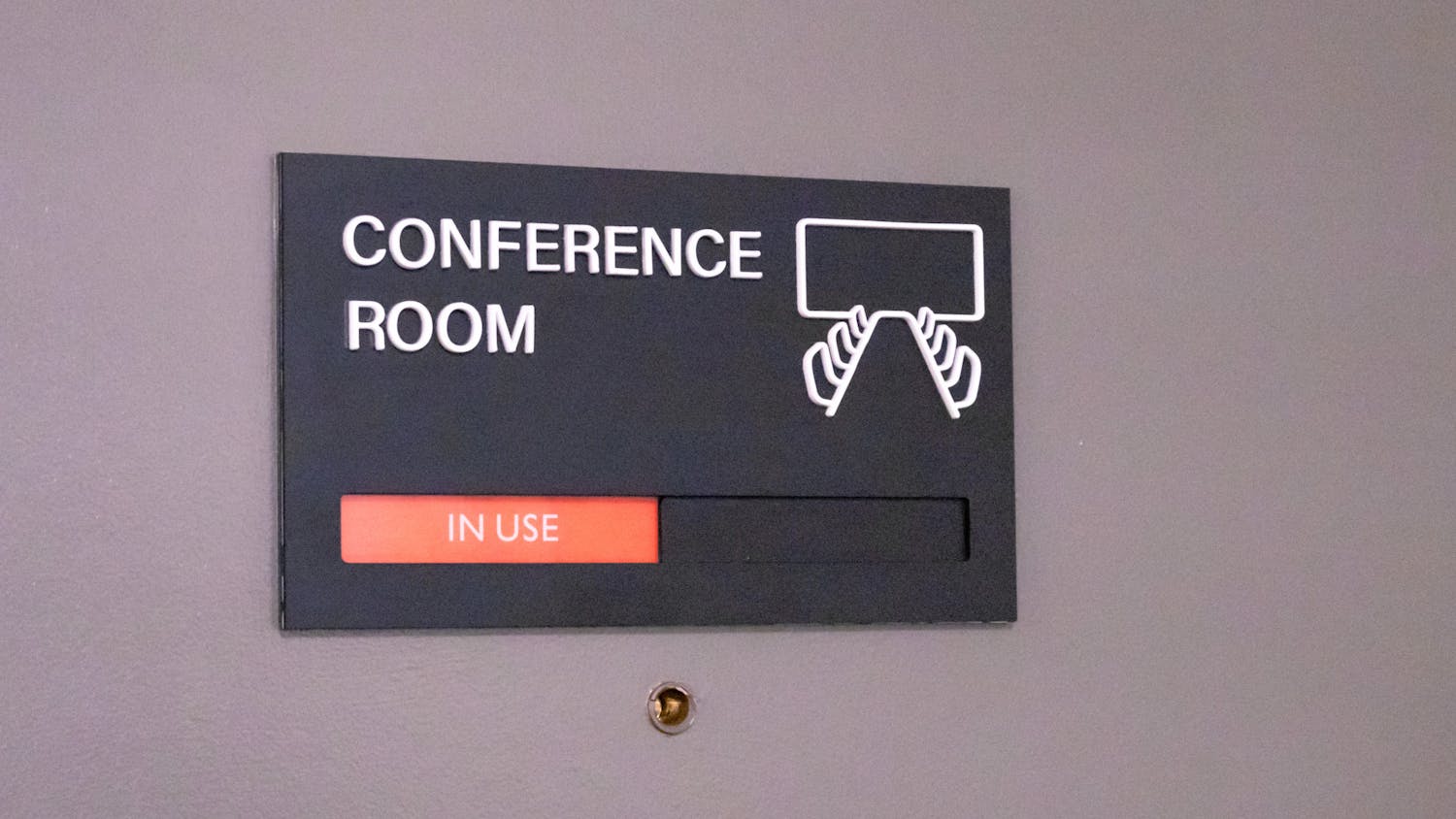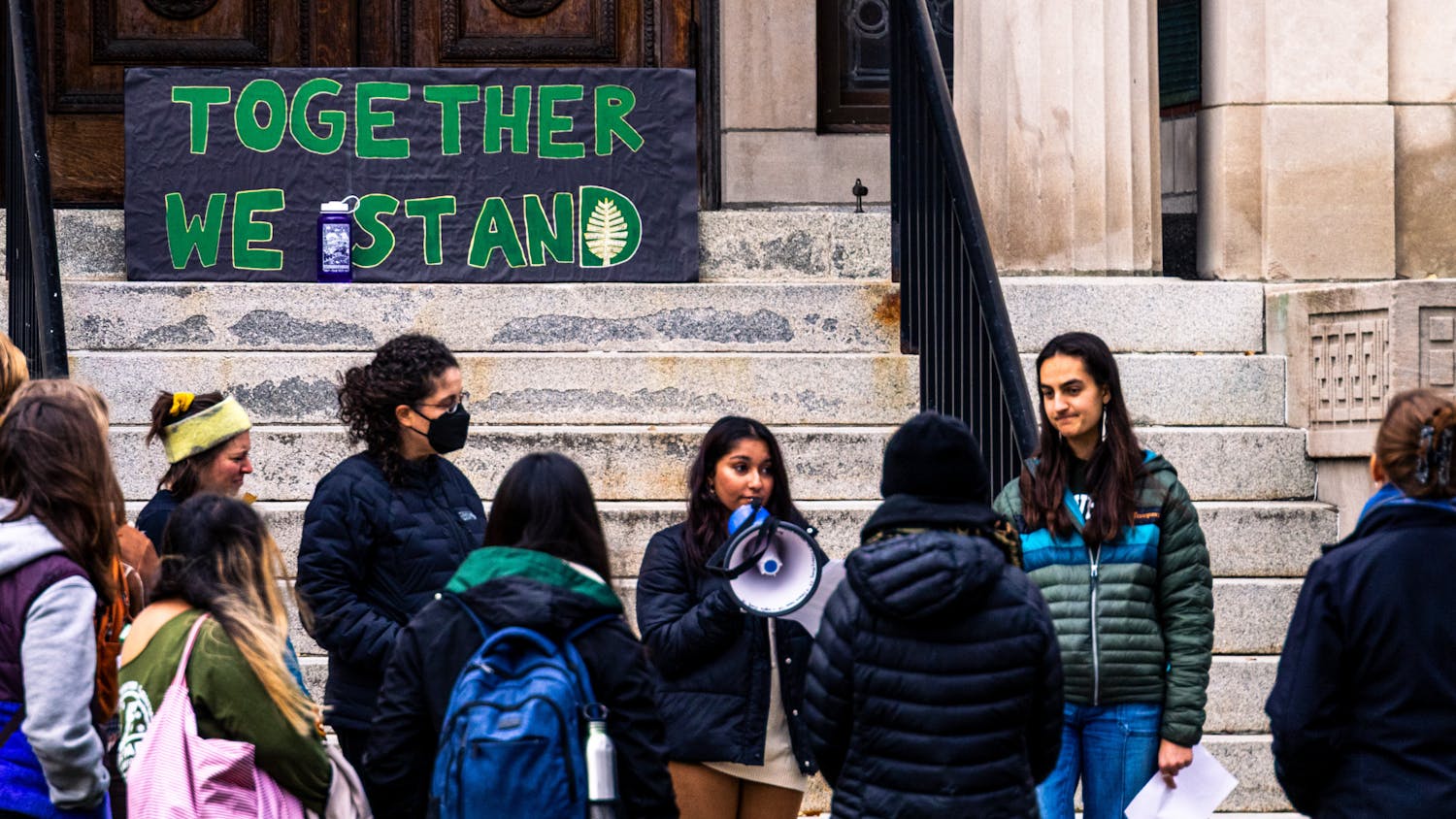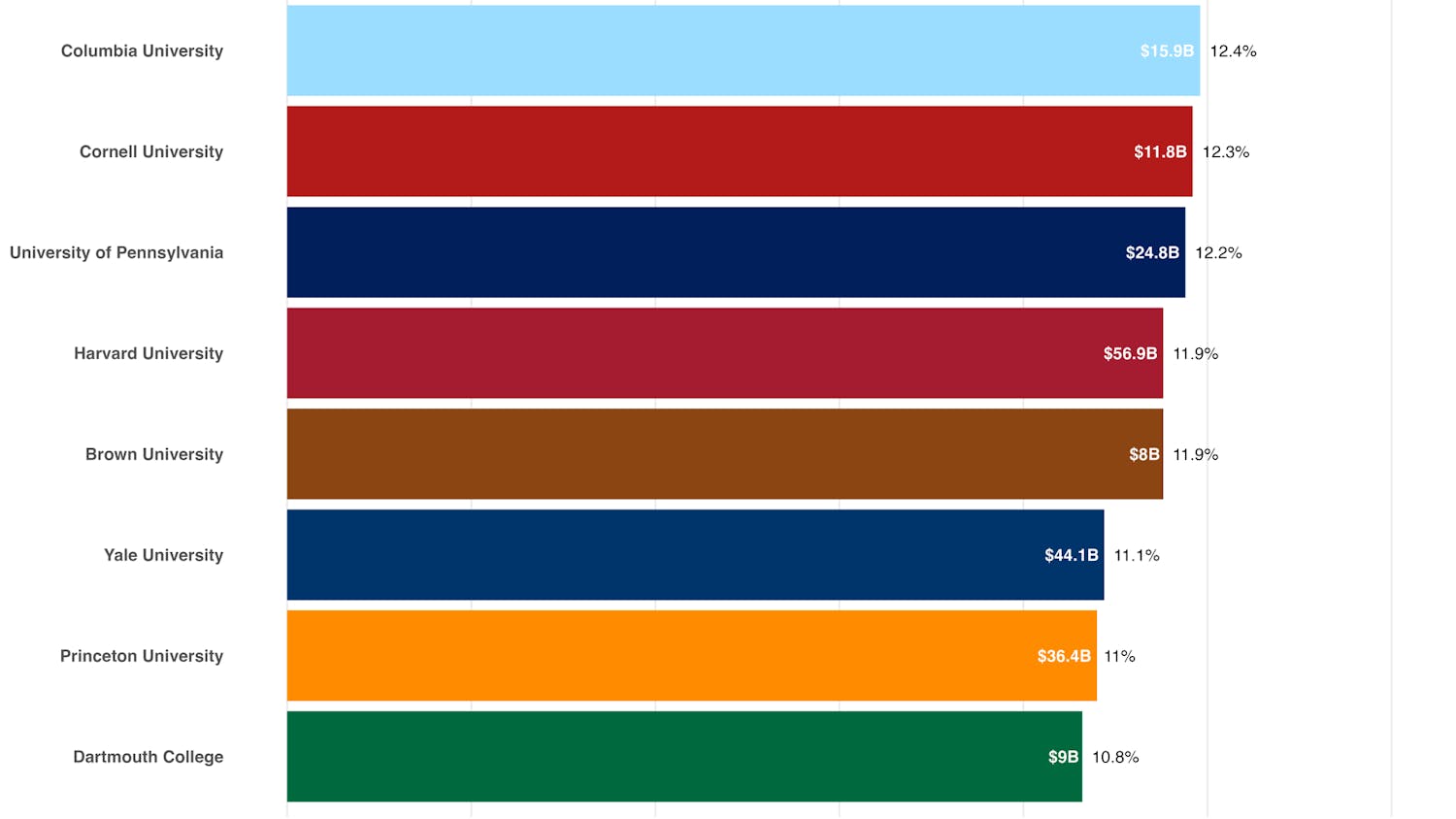The College hired three tenured professors and six tenure-track professors to start this term, which marks a 50-percent decrease from previous Fall terms.
"It's a very small class," Assistant Dean of the Faculty Sheila Culbert said. "We only have nine new faculty this year, which is considerably smaller" than in previous years.
For the past two years, the College has hired 19 new professors each year.
Culbert said there are a variety of reasons for the decreased number of new faculty. "The expansion of the faculty with the new curriculum is just about complete," she said, and added, "a couple of searches fell through."
The three new tenured professors are Sociology Professor John Campbell, Psychology Professor Michael Gazzaniga and Computer Science Professor David Nicol.
The new tenure-track professors include Math Professor Geoff Davis, Government Professor Norberto DeSousa, Classics Professor Margaret Graver, English Professor Richard Ortiz, Spanish and Portuguese Professor Israel Reyes and Earth Sciences Professor Meixun Zhao.
Tenure-track professors generally sign a six-year contract and apply for tenure in their sixth year.
The three tenured professors are all well-established in their fields.
Nicol, who joins Dartmouth from the College of William and Mary, said the College's reputation for education and research brought him to Hanover.
"The department I'm joining is young and growing and very good," he said.
Nicol said he focuses on parallel computing. "I look at ways of taking computational problems and dividing them among multiple computers ... to increase the size of the problems you can solve and accelerate the solutions," he said.
Nicol said he has additional reasons for coming to Dartmouth. "I'm also an outdoor kind of guy," he said. Nicol said he enjoys hiking, skiing, and canoeing.
Gazzaniga, a member of the Class of 1961, will be heading the cognitive neuroscience department, Culbert said.
"He's quite prominent. He's been associated with cognitive neuroscience since its inception," said George Wolford, associate dean of the faculty for the social sciences. "He's done a lot of work on split-brain patients and hemispheric differences."
Although Campbell is also new to the Dartmouth community, he is no stranger to the area.
In addition to teaching in Harvard University's sociology department for the past the eight years, Campbell said he lived in Hanover for a year while doing vocational training at a program for juvenile delinquents on the grounds of an old Shaker colony in Enfield during the 1970s.
In the academic field, Campbell said he has "done work that looks at the development of economic institutions in the United States," as well as "a lot of work on tax policies."
Campbell said he is currently teaching Sociology 1: Introductory Sociology and an advanced course.
Wolford said the new professors of the social sciences will make a significant contribution to the College.
"I think we made three really great appointments," he said of Campbell, Gazzaniga and DeSousa. "I think all three of them are going to prove distinctive."
DeSousa, who is originally from Montreal, said he was looking for a position in the Northeast -- especially in New England.
He said he spent the last decade studying and teaching in England.
"I'd heard a lot of good things about Dartmouth," DeSousa said. "I applied and came down for an interview, which was quite grueling at the time."
"My specialty is called the history of political thought," DeSousa said. He said his main focus is "the origins of ideas of civil law."
DeSousa is teaching two classes for the Fall term, Government 64: Modern Political Thought and a senior seminar called Reason and Politics in the 20th Century.
New to the English department, Ortiz said he will primarily be teaching literary criticism, but he will also teach Latino and Gay and Lesbian literature.
Ortiz said he came to Dartmouth because he was "looking for a job with better working conditions."
"I had been teaching at San Jose State for the last three years, since getting my Ph.D.," he said.
Ortiz is teaching English 5: Literature and Composition and English 14: Introduction to Criticism.
Joining the classics department, Graver focuses on ancient literature and philosophy. She worked at Princeton University last year.
"I've done a lot of work on the philosophical works of Seneca," she said, in addition to as studies of Cicero, Lucretius and Homer.
While Graver is only doing research this term, she will be teaching "an introductory Latin course and a class on Virgil in the winter."
Davis, who has been at the College for two years as an instructor, already knows the ropes.
"I get a raise, which is nice," Davis said, explaining the difference. "Before I had a two-year position. This is a tenure-track," which is a six-year commitment, he said.
Davis said he is focusing his studies on efficient digital imagery, especially as it relates to the medical field.
"One of the things I'm working on is a way to speed up the access of magnetic resonance images," Davis said.
Zhao, who has studied at the University of China, the University of California at San Diego and the University of Bristol in England, will also contribute to the College's science offerings.
"My research area is called organic geochemistry," Zhao said. "Basically we do the analysis of organic compounds in the earth's environment."
Zhao is currently teaching Earth Sciences 62: Geochemistry and is looking forward to some new experiences at Dartmouth.
"I'm quite looking forward to my first season of skiing," he said.



